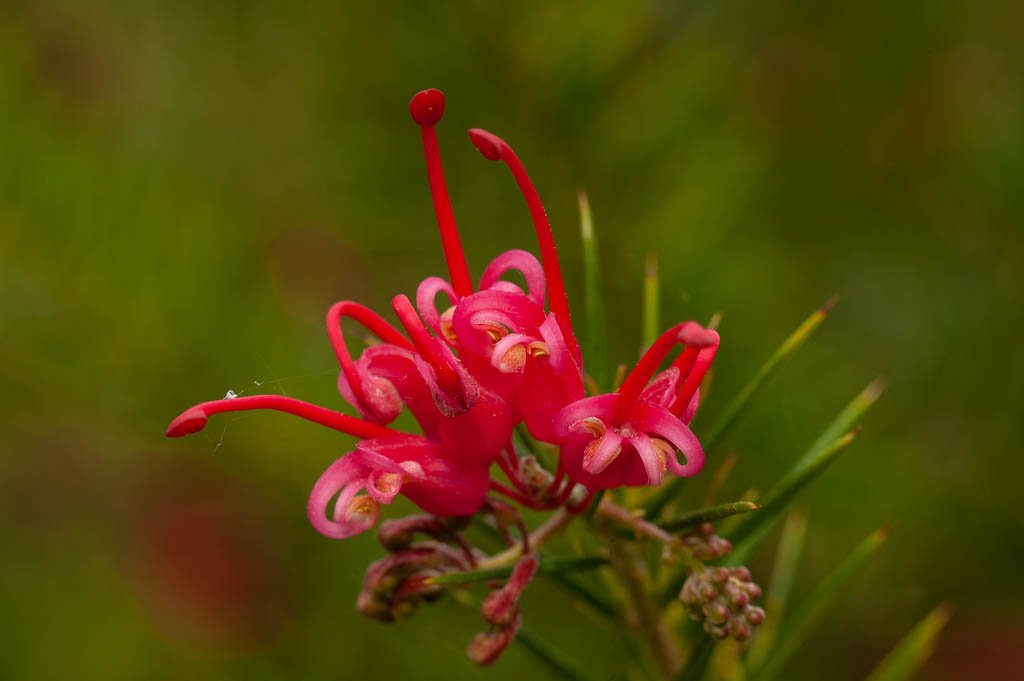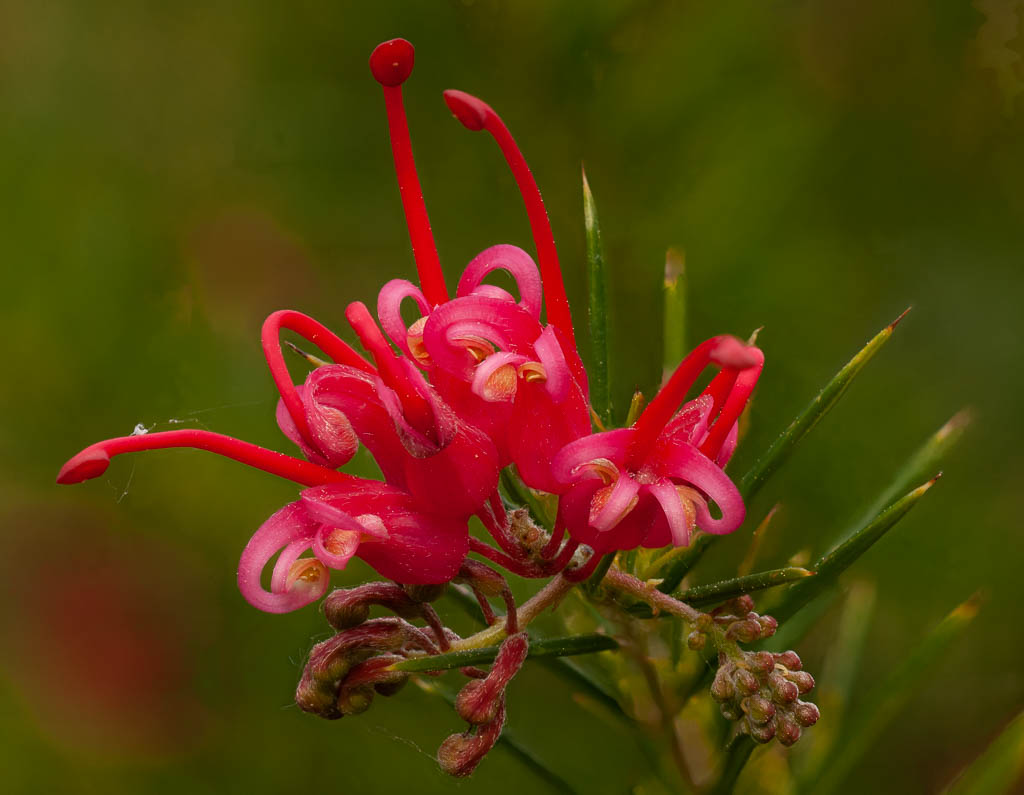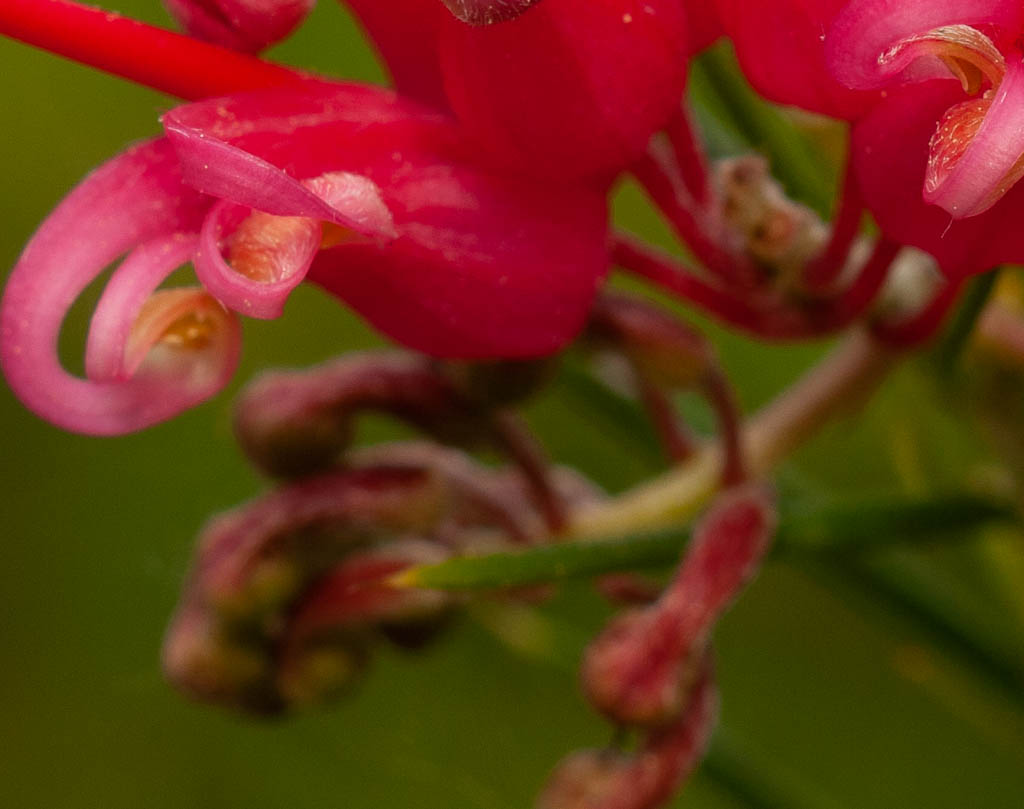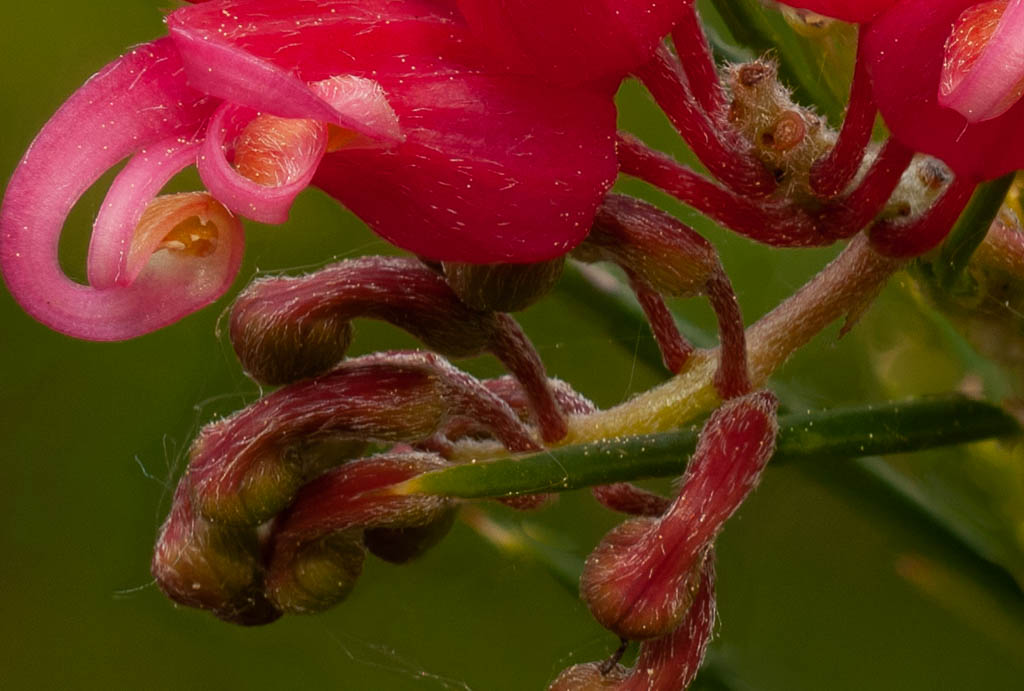| This site requires new users to accept that a small amount of member data is captured and held in an attempt to reduce spammers and to manage users. This site also uses cookies to ensure ease of use. In order to comply with new DPR regulations you are required to agree/disagree with this process. If you do not agree then please email the Admins using info@nikondslr.uk after requesting a new account. Thank you. |
| Moderated by: chrisbet, | ||
| Author | Post | |||||||||
|---|---|---|---|---|---|---|---|---|---|---|
Robert
|
EDIT: I have corrected the plant name to Grevillea Johnsonii, the plant was wrongly named. Focus stacking has always fascinated me, a trick to overcome the limitations of depth of focus at close range. During my last visit to Ness Gardens I took several sets of images with manually stacked focus, achieved by turning the focus ring with the camera in a fixed position on a heavy tripod. Other methods include moving the camera/ lens assembly back and forth on a manual or even a digitally controlled slide, to take 'slices of sharpness' from the subject or fixing the entrance pupil and moving the camera to focus, which is probably most correct because the parallax is least unchanged but is exceeding awkward to achieve and only works with simple lenses which don't have Close range Correction (CRC) which shortens the focal length slightly as the lens is focused closer. I used the D3 and Nikkor 105mm f/4.0 lens at f11 with 1/100 sec at ISO400. Next time I think I will use a larger aperture and higher ISO to raise the shutter speed. This was only a short stack of five exposures, sometimes stacks can contain hundreds of exposures taken at micron intervals. This was the closest exposure.  This is the finished, stacked photo, stacked in Helicon Focus.  Then a pair of before and after crops at close to 100% ie. one sensor pixel to one screen pixel. The closest:  And the stacked image.  I tried using Photoshop to stack the images but it just crashed every time, so I tried Helicon Focus and it worked perfectly and very quickly so I am very impressed. |
|||||||||
jk
|
Nice work Robert. I have been using this feature on my Fuji XT2 recently, havent tried it on my D850. |
|||||||||
Eric
|
Stack me! That's good! Well done. |
|||||||||
Squarerigger
|
That's quit impressive Robert! |
|||||||||
Robert
|
Thank you all. Actually my first attempt went in the bin! I didn't check the exposures I used well enough, they were badly blurred and suffered from movement. I went back and selected the darkest images, which had been exposed at 1/100 sec. Doing focus stacking outside is not ideal if there is any wind blowing. They worked much better. Until I examined the images I hadn't realised the plant was hairy! I am considering making a focus stacking rail with a stepper motor which can be set to move the camera as little as one thousandth of an inch per exposure. Meaningless for normal flowers but for insects it needs such a fine movement. I fully intend to make more of these stacked images. I am somewhat miffed that Photoshop refused to get involved. Although I tried, star stacking software doesn't work for focus stacking! As usual post processing is significant, I guess it varies between photographs but artefacts and double edges are quite a factor. Re-focusing the lens, even slightly changes the angle of view progressively from the centre of the image. The subject 'grows' even though the camera is locked down, so in each successive exposure the subject changes in size in the frame and that's with a simple, unitary focus lens like the old micro Nikkor 105mm f/4.0 Ai lens. With the modern equivalent the image size must change drastically. |
|||||||||
Current theme is Modern editor
| A small amount of member data is captured and held in an attempt to reduce spammers and to manage users. This site also uses cookies to ensure ease of use. In order to comply with new DPR regulations you are required to agree/disagree with this process. If you do not agree then please email the Admins using info@nikondslr.uk Thank you. |